In the world of soccer, amidst the breath taking dribbles, gravity-defying goals, and tactical brilliance, one position stands as the vanguard, protecting the net with unwavering courage and skill – the goalkeeper.
Often described as the heartbeat of the team and the last line of defense, the goalkeeper’s role is an enigmatic blend of athleticism, anticipation, and strategic acumen.
In this article, we delve into the captivating world of goalkeeping in soccer, exploring the skills, attributes, and psychology that define these guardians of the goalposts.
From the earliest origins of this esteemed position to its modern-day evolution, we aim to demystify the art of goalkeeping and showcase its indispensable significance on the pitch.
What is the role of a goalkeeper in soccer?
Goalkeepers assume a crucial and distinct role on the soccer field, standing as the final barrier between the opposition’s goal and their team. Positioned farthest away from the enemy’s net, their primary objective is to safeguard their goal and maintain a spotless defensive record.

They employ every skill in their arsenal to thwart the opposing team’s scoring attempts while also guiding and instructing their fellow defenders to achieve this collective goal.
Goalkeepers shoulder a myriad of responsibilities, ranging from capturing crosses to dealing with diverse types of shots, saving free kicks and penalties, and promptly securing loose balls that come their way.
To facilitate their hand-based duties effectively, goalkeepers don specially-designed gloves that protect their hands, offering crucial cushioning and improved grip.
Beyond making saves and catching incoming balls, goalkeepers are expected to demonstrate exceptional distribution skills in various scenarios.
They proficiently execute over and under-arm throws, particularly when initiating swift counter-attacks from a defensive position, and master goal kicks to launch attacks from their own territory.
Additionally, goalkeepers often take charge of any free kicks awarded within their defensive third of the pitch, further exemplifying the multi-faceted nature of their role.
What things can a goalkeeper not do on the pitch?
One of the most significant privileges unique to goalkeepers is the ability to use their hands.
Unlike outfield players, who would face penalties for handling the ball, goalkeepers heavily rely on their hand skills.
However, this advantage is confined within their penalty area; once they venture beyond its borders, the handball rules apply to them as well.
Additionally, goalkeepers aren’t allowed to hold onto the soccer ball for a period of time that’s longer than six seconds. Have a read of this article to learn more about this particular rule.
What skills do you need to be a good goalkeeper?
There are quite a few actually.
Here’s a list we’ve compiled below:
1. Ball handling
At the heart of a goalkeeper’s skill set lies the art of catching the ball in a diverse array of situations.
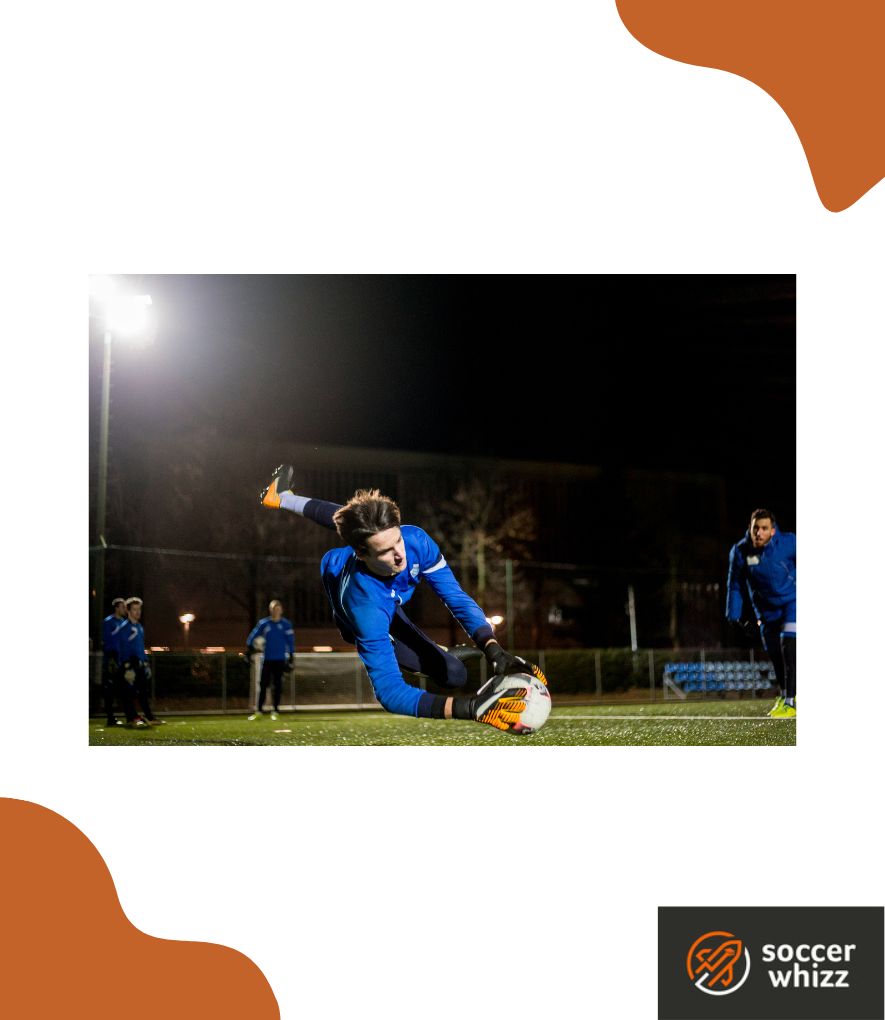
From leaping high to claim crosses entering the penalty area during corners, free kicks, or open play to confidently catching most shots directed at them, their ability to read the game and choose between catching, parrying, or blocking becomes paramount.
Moreover, deftly handling stray balls or intentional defensive nods helps alleviate pressure from their team’s defensive line.
2. Shot stopping
Anticipating and thwarting shots from opposing attackers constitutes a fundamental aspect of any goalkeeper’s job description.
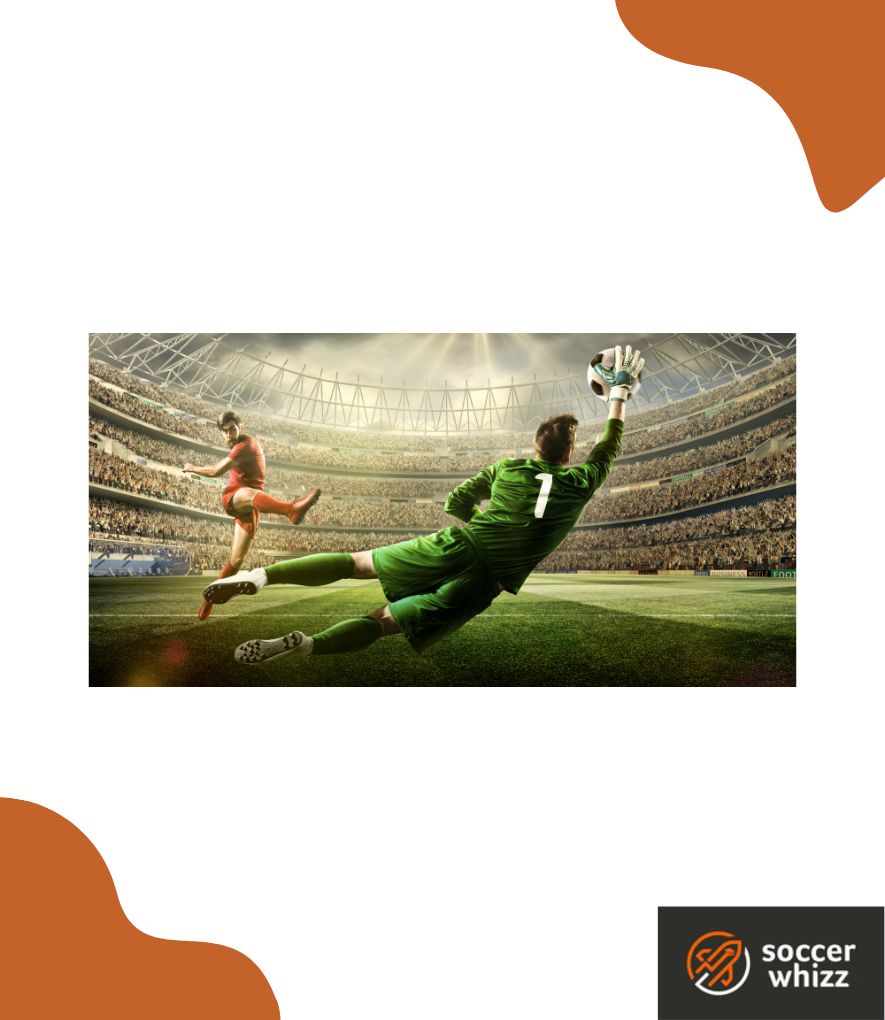
The finest shot-stoppers possess the knack for making precise judgments, deciding whether to block, punch, parry, or even kick away goal-bound strikes.
Different situations demand varying types of saves, and exceptional goalkeepers like David De Gea exhibit mastery in employing the right save technique at the right moment.
3. Height and physicality
Goalkeeper is one of the few positions on the soccer field that places specific height requirements.
In the modern game, the average height for a goalkeeper hovers around 6 feet 2 inches, with no Premier League keepers measuring below this threshold.
This height advantage plays a pivotal role in commanding the goal area, collecting crosses, and presenting an imposing presence to opposing strikers.
Beyond height, goalkeepers must possess physical strength, particularly robust arm muscles to withstand the impact of powerful shots.
4. Reflexes and agility
Contrary to assumptions based on their height, goalkeepers showcase remarkable agility and reflexes, vital attributes in their repertoire.
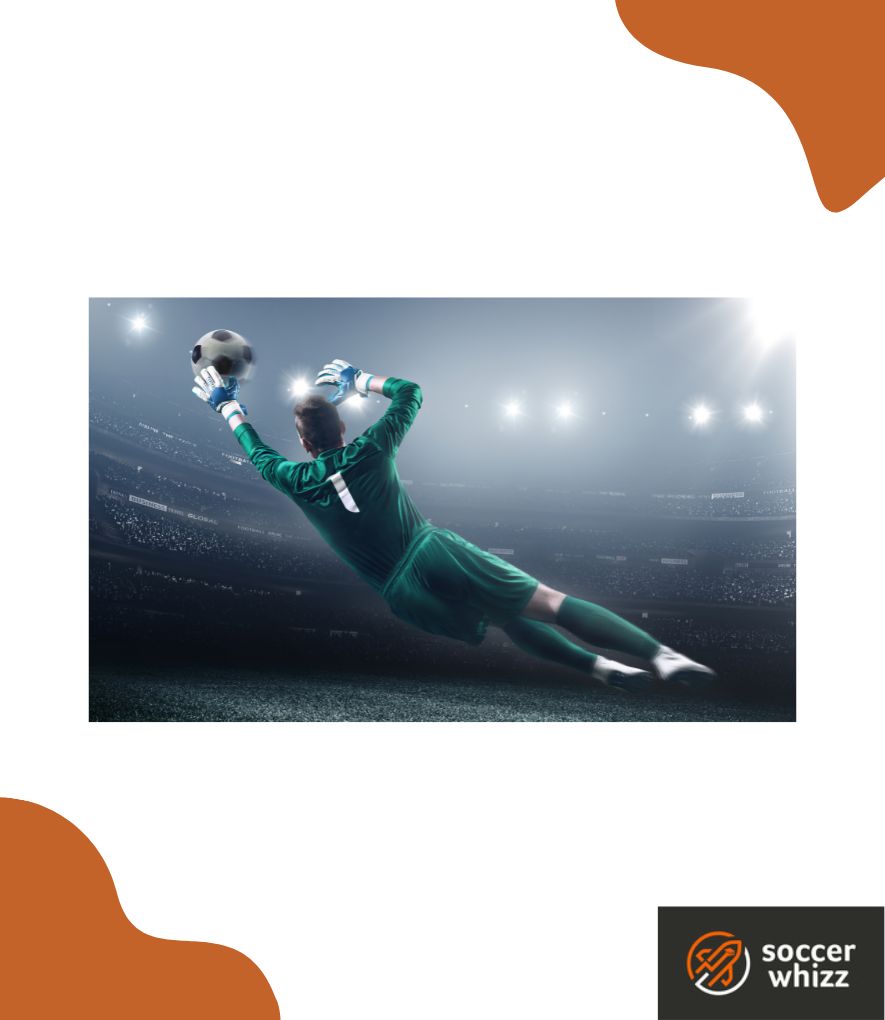
Swift and nimble movement within the penalty area is crucial for making quick reflex saves, charging off the goal line to intercept loose balls, pressurizing opposition strikers, and clearing the ball from dangerous areas.
5. Organizational skills
The finest goalkeepers also emerge as natural leaders on the pitch.
They actively direct their defensive line, assigning individual marking responsibilities or zones, and vociferously guiding their teammates during challenging moments.
Asserting control over their penalty box in this manner constitutes an integral facet of their role.
6. Kicking prowess
Throughout a soccer match, goalkeepers frequently encounter situations that demand excellent kicking abilities.
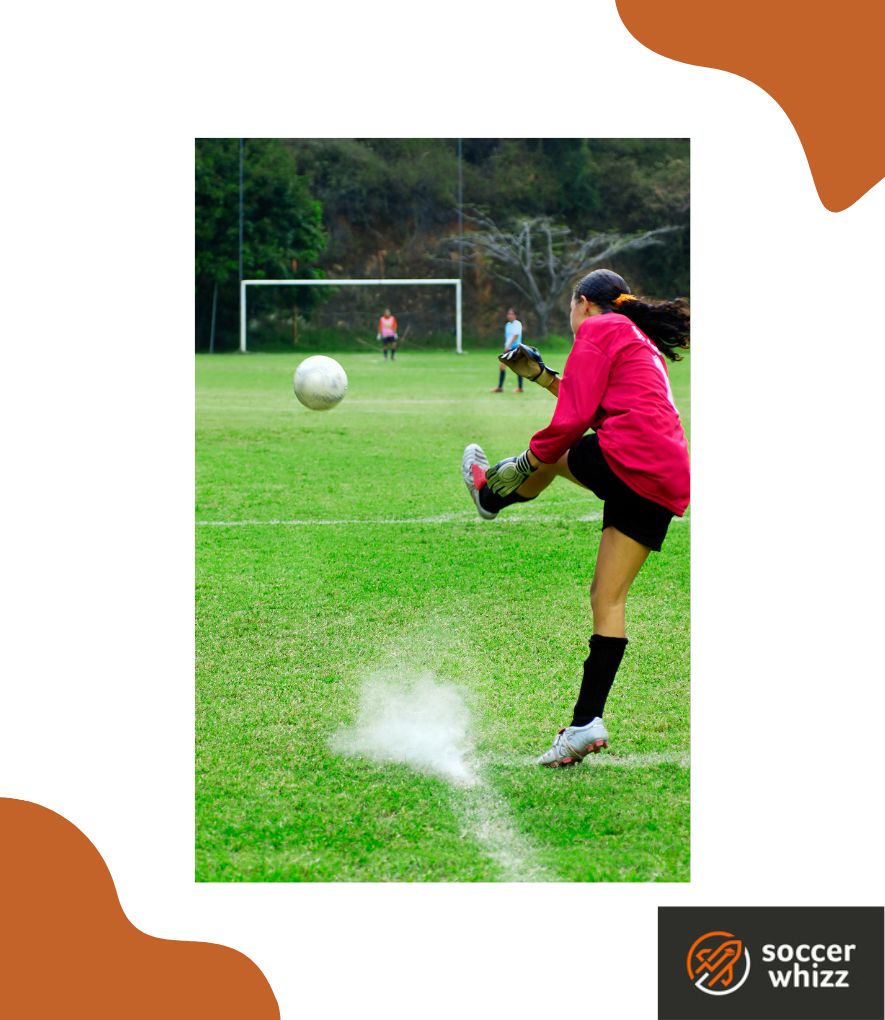
Whether it’s executing goal kicks, free kicks, or participating in outfield passing moves, goalkeepers must deliver accurate and powerful kicks over varying distances.
7. Footwork and possession play
In the modern era, some goalkeepers assume a critical role in their team’s possession play.
Players like Manchester City’s Ederson or Liverpool’s Alisson Becker showcase their ability to receive, control, and pass the ball proficiently.
Have a look at the example footage below for a brief showcase of such passing quality:
The importance of good footwork is amplified when faced with opponents eagerly pressing to capitalize on any touch, emphasizing the significance of foot skills for goalkeepers.
Which goalkeepers in today’s game are considered the best?
Here are a few names worth mentioning:
Thibaut Courtois
Starting with none other than Real Madrid’s Thibaut Courtois, his stellar performance in the 2022 UEFA Champions League Final proved pivotal in securing victory for his team.
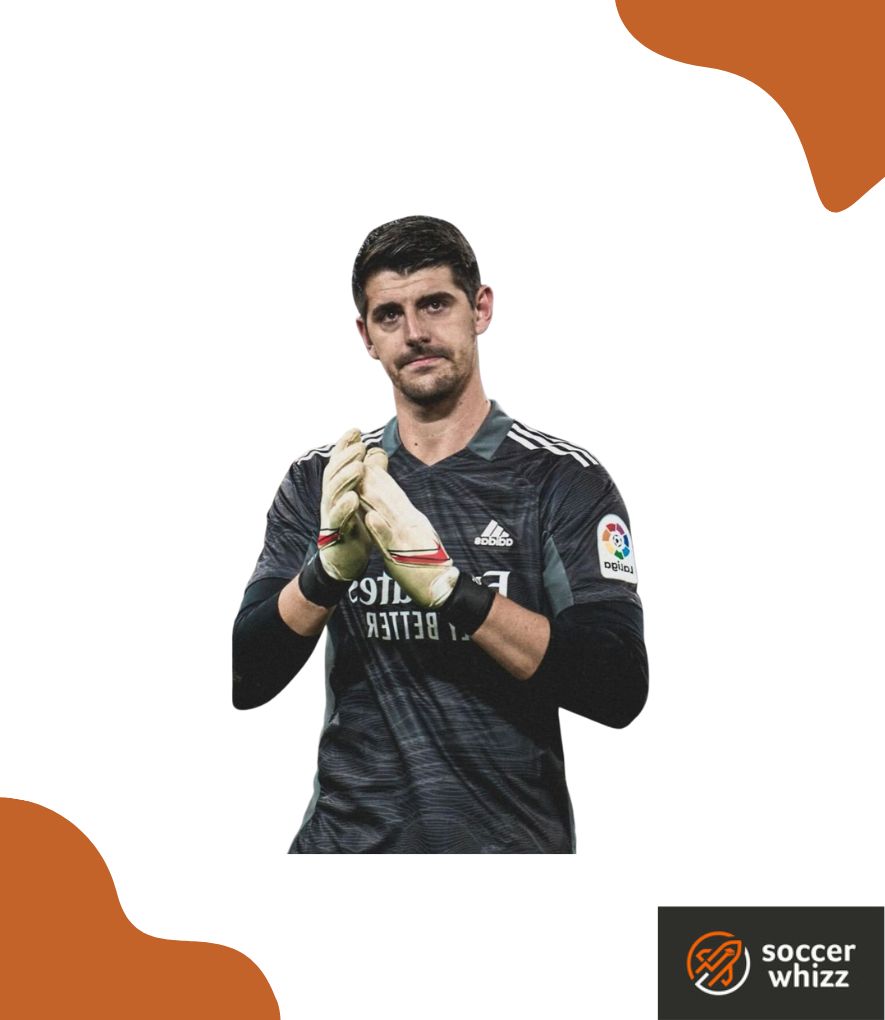
Standing tall at an impressive 6 feet 7 inches, the Belgian international possesses an unstoppable presence when he’s in top form.
Ederson Moraes
Regarded as one of the world’s finest keepers in terms of technical prowess, Ederson’s abilities are second to none.
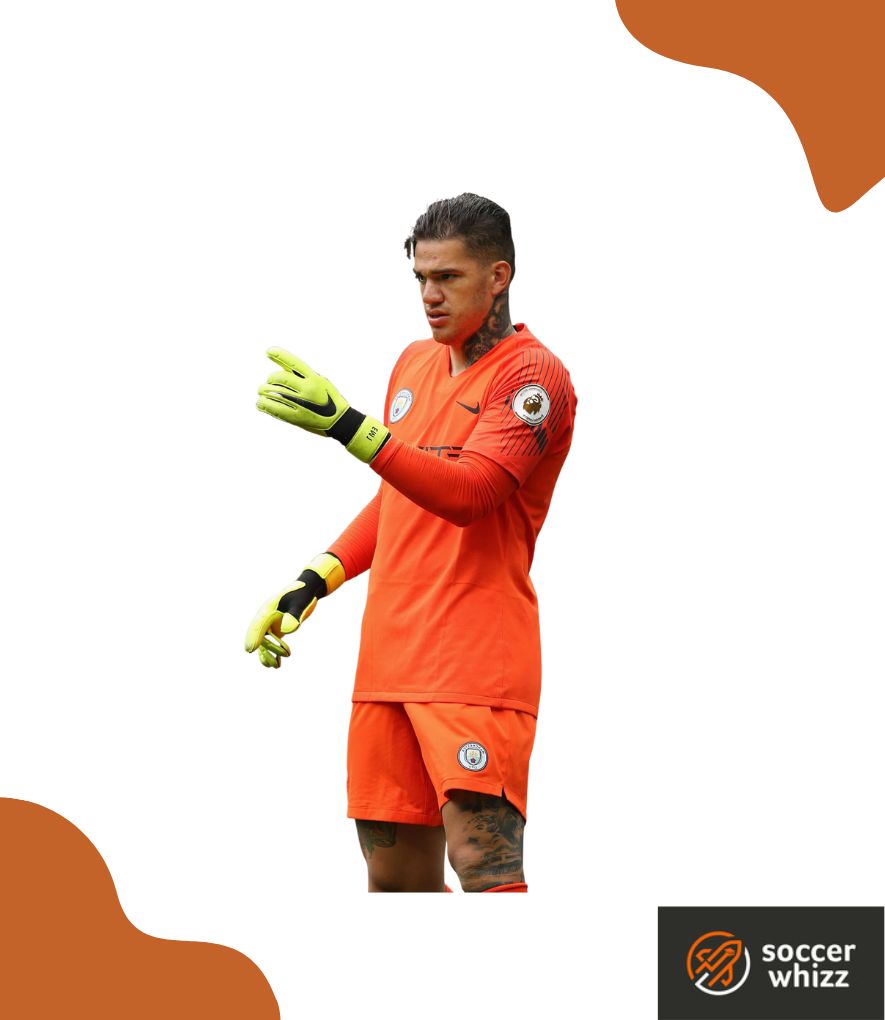
His capacity to receive the ball under pressure and execute daring turns and skills is nothing short of remarkable.
With outstanding footwork, exceptional distribution skills, and a robust physique, he stands as an extraordinary goalkeeper.
Alisson Becker
Challenging Ederson in terms of technical prowess, Alisson Becker, the fellow Brazilian international, shines as a shot-stopper and commanding presence in the penalty box.
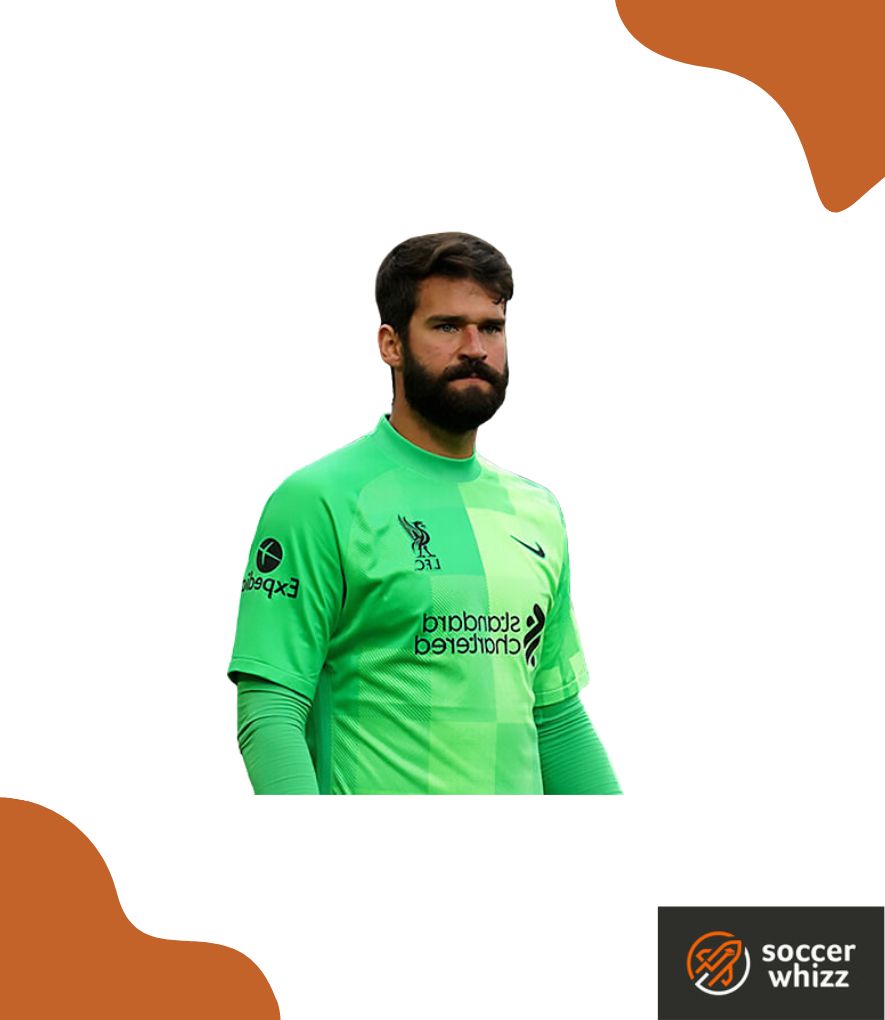
Widely considered one of the best goalkeepers globally, his skills and capabilities leave no room for doubt.
Concluding thoughts
Ultimately, the goalkeeper in soccer is an unsung hero, the fearless guardian of the goalposts, and the ultimate last line of defense.
Possessing a unique combination of athleticism, anticipation, and leadership, they play a vital role in shaping the destiny of their team.
From acrobatic saves to commanding their defensive line, from orchestrating plays to distributing the ball with precision, goalkeepers exhibit a diverse skill set that sets them apart on the pitch.
If you’re after more of the same content on our blog, check out our recent articles detailing the other soccer positions, such as:
If you enjoy the content that I create and would like to buy me a coffee, then I’d really appreciate it!
Any money that I earn through this donation will be re-invested into more content for this website.
Additionally, by sending in a donation you’ll also receive a copy of my recently released 190+ page eBook on Soccer Ball Care, as well as be subscribed to our mailing list where you’ll be regularly informed on the latest developments concerning the Soccer Whizz blog.
- Future Icons: Europe’s Emerging Midfield Maestros Set for Glory - December 4, 2023
- Kickstarting a Revolution: How Soccer Transformed the United States Over the Last Four Years - October 7, 2023
- 4-1-4-1 Soccer Formation [Analysis] - September 23, 2023

